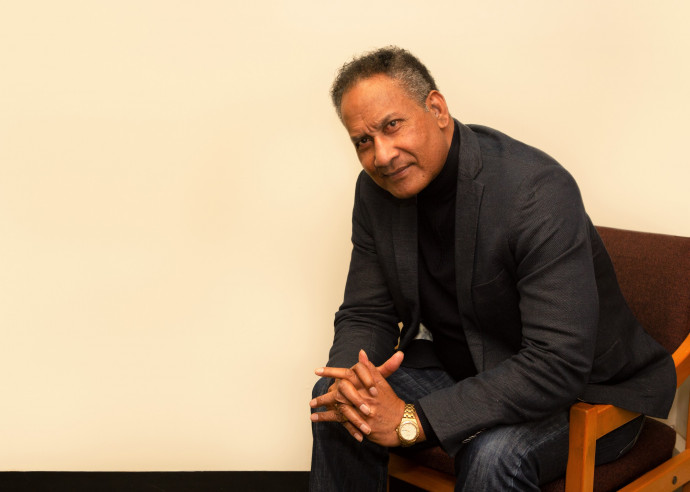Mema o Te Apārangi | Member profile: Steven Ratuva FRSNZ

In this month’s Member profile, we hear from Distinguished Professor Steven Ratuva, a Fellow of the Royal Society Te Apārangi.
Tell us about the organisation you are with and also the work you do outside of this.
I am Pro-Vice Chancellor Pacific and Director of the Macmillan Brown Centre for Pacific Studies at the University of Canterbury. I’m also Chair of the International Political Science Association Research Committee on Climate Security and Planetary Politics. I’m also one of the Climate Change Commissioners and member of a number of boards.
When were you inducted as a Fellow of Royal Society Te Apārangi and what has your involvement been with the Society?
I was inducted in 2020 and since then I’ve been involved as a member of Fellows panel, medals panel as well as a Council member.
What has been a defining highlight of your career?
Apart from winning the University of Canterbury Research Medal and the Royal Society’s Metge Medal, one of my career highlights was leading an international disciplinary team of experts to put together the largest and most comprehensive work on ethnicity, covering 80 countries around the world.
What were the contributing factors for choosing to work in the Social Science field?
In high school, I was a science student and physics was my favourite subject, then I changed to social science at university. I wanted to be engaged in deep analytical and critical thinking and wanted to be involved with socially impactful and transformative research and knowledge making, so to me social science was a way of getting there.
I love social science because it allows me to transcend knowledge boundaries and engage in research across disciplines, which unfortunately academics religiously defend as their exclusive territories.
The irony is that universities have created little disciplinary boxes in our minds in contrast to the world out there, which is more fluid and dynamic – economics, business, technology, culture, environment, ideology, politics and people are all connected in complex and nuanced ways. We are seeing this playing out in front of us. Yet research funding today feeds into the one-dimensional myth that only STEM subjects lead to economic growth, when the reality is much more complex.
It’s the people who create growth – they produce, innovate, make decisions, trade, invest and buy. A whole range of variables such as people’s political behaviour, ideology, prejudices, diversity, etc, impact on growth!
To save our world, we have to be more nuanced, critical, comparative, innovative and empathetic in our thinking – this is what social science has taught me.
Natural science, social science, humanities, indigenous knowledge and all forms of knowledge systems must be valued as members of the family of human know-how. No part of the knowledge system is more superior than any other - they are just unique in their own specific ways and they all contribute in diverse ways to defining who we are as part of humanity.
When not working, I enjoy ....
I am also an artist and musician as well as a gym freak. I escape to these when academic stress is on. Hey wait, in between all these, I like watching my two best rugby teams, the Drua and Crusaders.
